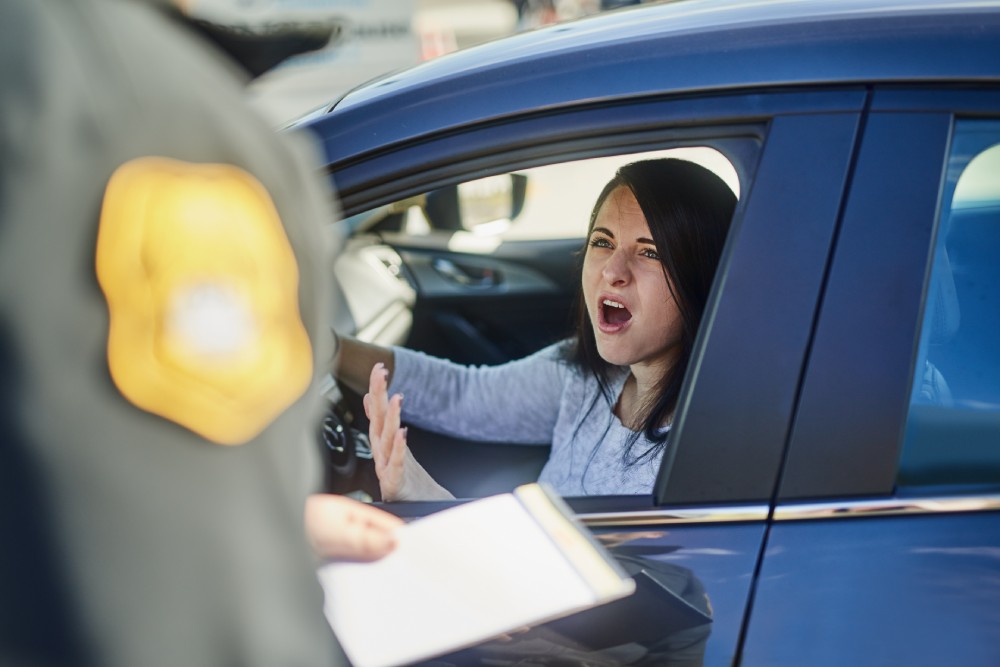DUI checkpoints—some drivers fear them, some ignore them, and others don’t know much about them at all. But if you’re on the road during holidays, weekends, or high-enforcement periods, there’s a good chance you’ll come across one.
So, what exactly happens at a DUI checkpoint? Are they legal? Can you turn around if you see one? Let’s break down what to expect, your rights, and how to handle the situation the right way.
What is a DUI Checkpoint?
A DUI checkpoint (sobriety checkpoint) is a temporary traffic stop where law enforcement officers check for signs of impaired driving. Unlike standard traffic stops, officers don’t need probable cause—they can stop vehicles in a predetermined pattern (e.g., every third car) and conduct sobriety tests if necessary.
These checkpoints aim to deter drunk driving and catch impaired drivers before accidents happen.
Where and When Are DUI Checkpoints Set Up?
DUI checkpoints aren’t random, they are typically planned in advance and occur:
- On weekends and holidays (New Year’s Eve, St. Patrick’s Day, July 4th, etc.)
- In high-traffic nightlife areas (near bars, clubs, or major event venues)
- Late at night (when most DUI-related incidents occur)
- In cities with high DUI rates
While states must publicize DUI checkpoints in advance, exact locations aren’t always revealed.
Pro Tip: Some websites and apps track DUI checkpoints in real time, but trying to “outrun” a checkpoint can lead to legal trouble.
What Happens at a DUI Checkpoint?
When you approach a checkpoint, officers will guide you into a designated stopping area and look for signs of impairment. Here’s what to expect:
Step 1: Initial Screening
- An officer will ask for your license, registration, and proof of insurance.
- They will observe your behavior—looking for signs of intoxication (slurred speech, smell of alcohol, bloodshot eyes).
If the officer suspects impairment, you’ll move to step 2 for further testing.
Step 2: Field Sobriety Tests & Breathalyzer
- You may be asked to perform field sobriety tests (e.g., walk-and-turn, horizontal gaze test).
- If alcohol is suspected, the officer may administer a breathalyzer test to check your Blood Alcohol Concentration (BAC).
- If your BAC is 0.08% or higher, you can be arrested for DUI.
Step 3: Arrest or Release
- If you pass the screening, you’re free to go.
- If you fail or refuse a breath test, you may be arrested, fined, and have your license suspended.
Refusing a Breathalyzer Test: Some states allow refusal, but most have “implied consent laws,” meaning refusing the test leads to automatic license suspension.
Can You Turn Around to Avoid a DUI Checkpoint?
Yes, but it depends how you do it.
You legally have the right to turn around if you see a checkpoint ahead, as long as you obey traffic laws. However:
- If you make an illegal U-turn or drive recklessly, police can pull you over.
- If officers see you abruptly turning around, they will likely follow you and look for other violations to justify a stop.
Are DUI Checkpoints Legal?
Yes, DUI checkpoints are legal in most states, including California and Kansas, as long as:
- They are publicly announced in advance.
- They follow a neutral selection process (e.g., stopping every 3rd car).
- They minimize delay (long waits could be considered unlawful detainment).
However, some states do not allow DUI checkpoints, including Texas, Wisconsin, and Idaho.
How to Handle a DUI Checkpoint Like a Pro
If you encounter a DUI checkpoint, follow these tips to ensure a smooth experience:
- Stay calm & cooperate – Have your license, registration, and insurance ready.
- Be polite – Officers are doing their job. Avoid arguing or being confrontational.
- Know your rights – You have the right to remain silent and refuse field sobriety tests (but refusing a breathalyzer may result in license suspension).
- Avoid suspicious behavior – Don’t fumble for documents, avoid eye contact, or act nervous—it raises suspicion.
DUI Checkpoints and Ignition Interlock Devices (IIDs)
If you already have an IID due to a prior DUI conviction, a checkpoint can be stressful. Here’s what you should know:
- IIDs prevent you from driving drunk—if you’re stopped, officers may still conduct standard checks.
- If your IID records violations (e.g., failed breath tests), it can be used as evidence if you’re suspected of DUI.
If you need an IID or want to learn about compliance, contact Clear2Drive at 855-261-3944 for expert guidance.
Final Thoughts: Know Your Rights, Stay Safe
DUI checkpoints aren’t traps—they’re designed to keep roads safe and prevent drunk driving accidents. By knowing how they work, what to expect, and your legal rights, you can handle them with confidence and without unnecessary stress.
Best way to avoid DUI trouble? Plan ahead, don’t drive impaired, and always have a safe ride home.


